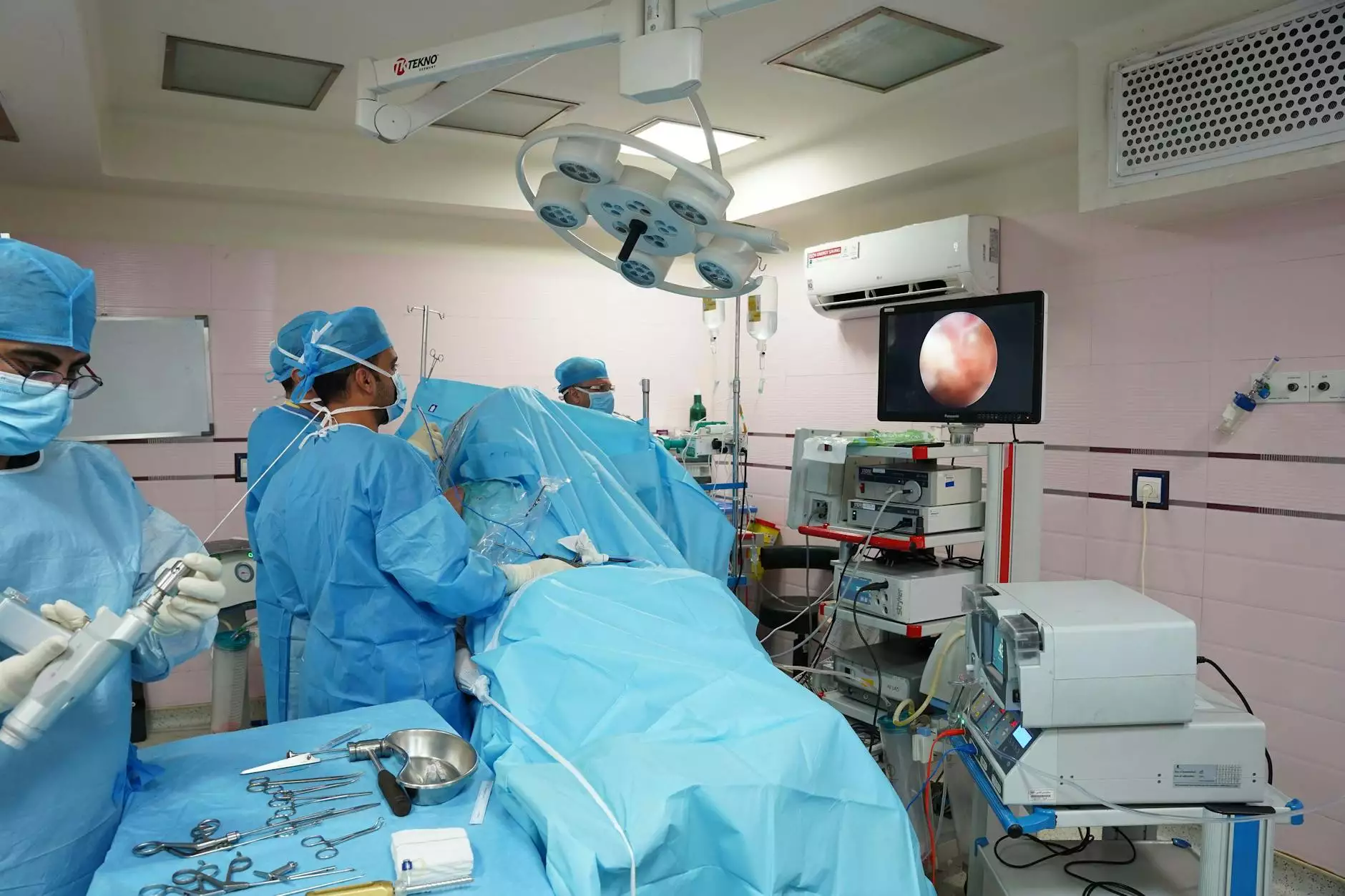The Comprehensive Guide to Dental Surgery

Understanding Dental Surgery
Dental surgery encompasses a wide range of procedures aimed at treating, restoring, and maintaining the oral health of patients. From routine extractions to complex reconstructive surgeries, this field is essential for preserving both functionality and aesthetic appeal of teeth and jaws.
Types of Dental Surgery
The realm of dental surgery includes various categories, each addressing specific conditions and patient needs. Here are some of the key types:
- Tooth Extractions - The removal of damaged, decayed, or problematic teeth.
- Wisdom Teeth Removal - Surgical extraction of third molars that often cause pain or misalignment.
- Dental Implants - Permanent solutions for missing teeth, involving a surgical procedure to embed a titanium post in the jawbone.
- Oral Biopsies - The removal of tissue samples to test for abnormal growths or cancer.
- Jaw Surgery - Correcting jaw deformities to improve function and appearance.
The Importance of Dental Surgery in Oral Health
Maintaining oral health is a fundamental aspect of overall well-being. Procedures in dental surgery are crucial for several reasons:
- Pain Relief: Many dental surgeries alleviate significant discomfort caused by decay or injury.
- Restoration of Function: Surgeries like dental implants restore the ability to chew and speak properly.
- Prevention of Further Complications: Timely surgical intervention can prevent more serious health issues, such as infections.
Who Performs Dental Surgery?
Dental surgeons and specialists, including oral and maxillofacial surgeons, periodontists, and orthodontists, perform dental surgery. Each specialist focuses on different areas of the oral cavity and possesses unique skills pertinent to specific procedures.
Qualifications of a Dental Surgeon
To practice dental surgery, dental professionals must complete extensive education and training, including:
- A bachelor's degree followed by a dental degree from an accredited dental school.
- Postgraduate training in a specialized field, such as oral surgery or orthodontics.
- Licensure and ongoing education to keep up with advancements in dental techniques and technologies.
Preparing for Dental Surgery
Preparation for any dental surgery is crucial for the success of the procedure. Here are some essential steps:
- Consultation: Discuss your medical history, any medications you take, and your specific concerns with your dentist or oral surgeon.
- X-rays and Imaging: Diagnostic imaging may be required to assess the oral structure and plan the surgery accurately.
- Preoperative Instructions: Follow any guidelines provided, such as fasting before surgery or avoiding certain medications.
What to Expect During and After Dental Surgery
Understanding what happens during dental surgery can help reduce anxiety. The procedure typically includes:
- Anesthesia: Local or general anesthesia will be administered to ensure comfort during the surgery.
- Procedure: The specific surgical steps will vary depending on the type of surgery being performed.
- Recovery: Post-operative care is crucial for a smooth recovery. This may include managing pain, swelling, and following a diet of soft foods.
Post-Surgery Care Tips
To promote healing after dental surgery, follow these post-operative care tips:
- Follow your dentist’s instructions carefully.
- Apply ice packs to reduce swelling.
- Eat soft foods and avoid anything that might irritate the surgical site.
- Maintain oral hygiene while avoiding the surgical area to prevent infection.
- Attend follow-up appointments as advised.
Common Concerns About Dental Surgery
Many patients have concerns regarding the safety and necessity of dental surgery. Here are some common questions:
Is dental surgery safe?
Yes, dental surgery is generally safe when performed by qualified professionals. Risks are minimized through proper preparation and technology.
How painful is dental surgery?
Discomfort can occur, but anesthesia and postoperative care effectively manage pain. Most patients report less pain than expected.
What are the costs associated with dental surgery?
Cost varies widely based on the procedure type, complexity, and whether insurance covers it. It’s best to consult your dental office for an accurate estimate.
The Role of Technology in Dental Surgery
Technology has significantly enhanced the efficacy and safety of dental surgery. From advanced imaging systems to minimally invasive techniques, here’s how technology is changing the landscape:
- 3D Imaging: Provides detailed visuals for surgical planning.
- Laser Surgery: Minimizes bleeding and recovery time.
- Robotic Assistance: Ensures precision in complex procedures.
Conclusion: The Vital Role of Dental Surgery in Oral Health
In summary, dental surgery plays an indispensable role in maintaining and restoring oral health. With advancements in technology and skilled professionals, patients can have confidence in the safety and efficacy of these procedures.
For anyone considering dental surgery, it is essential to consult with professionals who understand your specific needs and can guide you through the process. Visit teethattiongbahru.com for more information about dental services and to schedule your consultation today!









